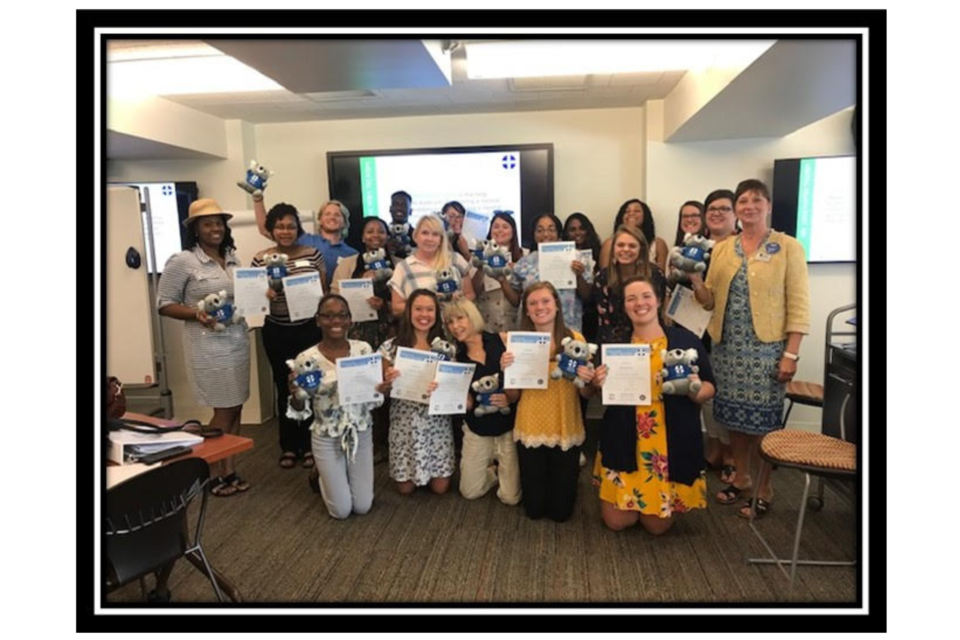Dr. Jane Nester is the executive director of Magnolia Coastlands AHEC, whose main office is housed on Georgia Southern's Statesboro Campus. The nonprofit is funded through the Department of Community Health in Georgia, HRSA, and through smaller grants.
"We are a community-driven nonprofit organization and we are also affiliated with Georgia Southern University," Nester explains. "We've had a relationship now for about 25 years."
Nester goes on to explain that every state has an AHEC system. Executive directors meet regularly to assess local needs and make plans to realize those goals.
"We look to assist our communities in building and sustaining the healthcare workforce to meet our region's healthcare needs," Nester says.
To accomplish this, Magnolia Coastlands AHEC focuses on three core areas: recruitment, training, and continuing education.
Finding future healthcare professionals
Recruitment typically entails healthcare coordinators going out to the schools to present information about various health science careers, working with the teachers, and developing a rapport with potential students. They also partner with Georgia Southern University's College of Public Health to host "Public Health for Young Adults Day," showcasing the different career paths students can choose from such as epidemiology, health policy, environmental health specialist, biostatistician, community health educator, and much more.
The second phase of Magnolia Coastlands AHEC focuses on clinical training experiences with different careers within the healthcare system.
"We work with a number of academic institutions to help place their students in clinical rotations in the community and that could be in position practices at the hospitals, at rural health clinics," Nester reports, "Therefore, they get their required rotations in order to graduate and practice as a healthcare professional."
Continuing Education
Once healthcare professionals graduate, they are required to maintain a certain number of continuing education credits in order to keep their licenses current. Magnolia Coastlands AHEC helps with this as well.
"We provide some lunch-and-learns, half-day programs, symposiums," Nester says.
The most popular workshop is the Maternal Health Symposium, which is a full-day program of healthcare professionals and community partners to educate attendees about trends in maternal and child care.
The AHEC Scholars Program brings a team of healthcare students including nutrition, Master of Public Health (MPH), undergraduate nursing, and pre-med biology to work together to obtain the best outcomes and provide the best care for their patients. This unique experience enables graduates to enter the workforce with a practical readiness that is immediately useful in their new careers.
A local resource with enormous reach
With a service area of 39 counties, Magnolia Coastlands AHEC is the largest of all of the AHECS.
"We reach all the way up to Dublin, all the way down to the coast of Florida," Nester explains, "and inward to about Warner Robbins and almost to the Augusta area."
In addition to their goals of recruitment, training, and continuing education, Magnolia Coastland AHEC provides housing for students who are doing clinical rotations in rural areas or stipends to help assist students with travel costs. They host 800, 4-6-week clinical rotations a year.
"Overall, what we really are is a healthcare workforce pipeline," Nester declares.
For more information about Magnolia Coastlands AHEC, please visit their website.




